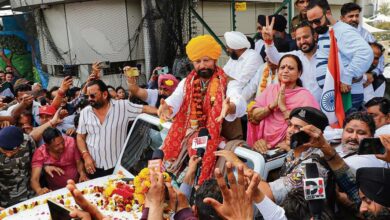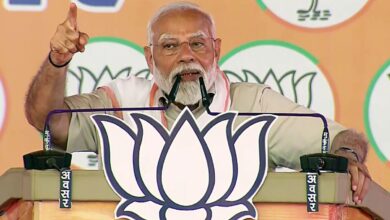Muslims declared themselves a country in 1920, not a minority: Senior defender
In the city of New Delhi, senior advocate Rakesh Dwivedi presented a historical narrative on Tuesday to challenge the Supreme Court’s suggestion that Aligarh Muslim University (AMU) could be considered a minority institution due to Muslim influence in its establishment in 1920.

Dwivedi, representing a petitioner who successfully contested the 50% reservation for Muslims in AMU in the Allahabad High Court, argued that during British rule, the concept of ‘minority’ did not exist. It would be presumptive for the seven-judge bench, led by CJI DY Chandrachud, to label AMU as a minority institution, as it was neither founded nor administered by Muslims.
Dwivedi emphasized that Muslims did not identify themselves as a minority when the AMU Act was enacted in 1920, and the British India government did not categorize them denominationally. Granting minority status to AMU more than a century later could jeopardize its status as a nationally significant institution. Dwivedi pointed out that AMU did not challenge the 1967 Azeez Basha judgment for over 40 years, which had declared it a non-minority institution.
Referring to Sir Syed Ahmad Khan, the founder of Muhammadan Anglo-Oriental (MAO) College, Dwivedi highlighted Khan’s belief in Muslims as a separate nation. Khan’s two-nation theory, endorsed by Allama Iqbal and leading to the 1940 Lahore Resolution, emphasized parity between Hindu India and Muslim India, culminating in the partition and the creation of Pakistan. Dwivedi contended that this theory did not align with the concept of safeguards for a minority.
Dwivedi delved into AMU’s history, stating that the Bill for its establishment was introduced by Sir Mohd Shafi, a member of the Imperial Legislative Council who supported the Muslim League and Pakistan. He argued that AMU’s scheme, distinct from MAO College’s regulations, does not allow AMU to claim that the Muslim community established it. Dwivedi concluded by highlighting that safeguards for Muslims, including Article 30, were only considered after the creation of Pakistan, and the framers of the Constitution implemented them.







